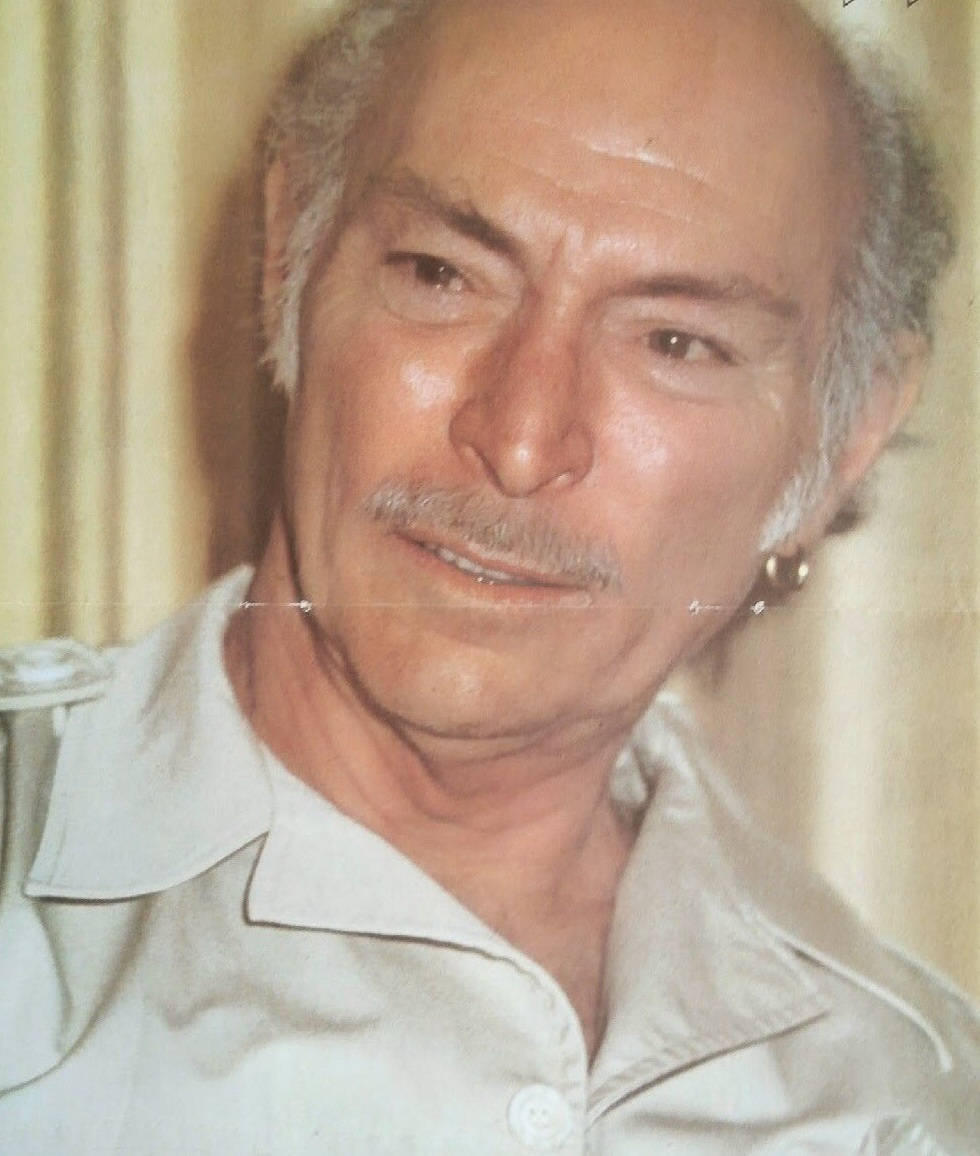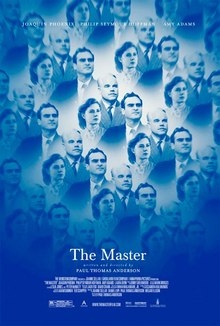Still I Look to Find a Reason to Believe...
Let me start off my review for The Master by saying that alas, this isn't the film version of the 1984 television show of the same name which starred Lee Van Cleef as a ninja master.
I can't help suppressing a chuckle every time I think of Lee Van Cleef as a ninja master, but hey, I LIKED the show. Then again the shows I tend to like no one watches: Due South, The Cape, Journeyman, Live Shot, Street Hawk. I'm genuinely surprised Teen Wolf and/or Franklin & Bash haven't been cancelled given that I'm a fan of both. Yet I digress.
Sadly, The Master is also not a film about of one of the best villains from the longtime science-fiction show River Song (formerly known as Doctor Who).
The Master is the newest film by Paul Thomas Anderson, and I'll be honest: I'm not an Anderson acolyte. I found things to admire in his last film, There Will Be Blood, but on the whole I found watching that film a hideous experience. When it comes to The Master, I get the same feeling: there are brilliant things within it, but the film is a bit too pretentious for my tastes (and I say this as a self-described bourgeois snob).
Freddie Quill (Joaquin Phoenix) is a highly troubled World War II veteran: drunk, sex-obsessed, he drifts from photography at a high-end store to migrant farm worker. After running from the death of another migrant farm worker who took too much of his homemade moonshine, he stows away on a ship holding a celebration.
It is the wedding party for the daughter of Lancaster Dodd (Phillip Seymour Hoffman), who we discover has a group of followers. He is the mastermind behind "The Cause" a vaguely-Scientology like theology that involves sessions where you regress to memories of your past lives. Dodd takes a liking to Freddie (and to his moonshine) and soon brings him into his inner circle.
Said inner circle includes his much-younger and pregnant wife Peggy (Amy Adams), his newly-married daughter Elizabeth (Ambyr Childers), her new husband Clark (Rami Malek), and somewhat in the shadows, his son Val (Jessie Plemons). Lancaster 'processes' (read Audits) Freddie, uncovering deep and disturbing secrets.
Freddie, the id to Lancaster's ego, physically fights for him and his Cause, even though Dodd constantly tries to alter Freddie's violent tendencies. Peggy continuously mistrusts Freddie, thinking that perhaps he is beyond saving and might be insane. Elizabeth hits on Freddie sometimes, and Clark is more devoted to Lancaster and The Cause than Val, who knows his father is 'making it up as he goes along' but still doesn't mind apparently living off the fortune he amasses.
Lancaster thinks of Freddie as something of a test case, trying to manipulate him into being someone better. Freddie for his part goes back and forth (in one long sequence, quite literally), eventually leaving the Dodds to look up his long-lost love. She, we find, married and moved on, so Freddie goes back to doing what he does best: screwing and drinking, but now with certain new techniques learned from his time with The Master...
It isn't so much that I don't get where Anderson wants to go with The Master as it is I find no interest in going there. Although I'm loath to compare one's previous work with what I've seen, I can't help think that Anderson is trying to do in The Master what he did with There Will Be Blood.
In particular, I wonder if he directs his leading star to be very showy; just as I found Daniel Day-Lewis to be wildly over-the-top in TWBB, I found Phoenix's mannerisms (the way he moved and held his body) to be similarly actor-ish, drawing attention to itself. This isn't to say he didn't have moments of excellence (his meltdown at the jail was marvelous to watch) but I couldn't help thinking it was all a bit exaggerated.
This isn't the case with either Hoffman or Adams, who are top-notch as the Dodds. One never knows whether Lancaster knows he's a charlatan, whether he genuinely believes his ideas, or whether he's just insane. Indications are that it's the second, and for the most part Hoffman plays Lancaster as a sincere, controlled man. It's when he breaks and erupts, whether it's at the jail with Freddie or a quick outburst with one of his disciples (Laura Dern in a too-small role) that we see the thin cracks beneath the veneer of the all-knowing Master.
Similarly, Adam's Peggy is someone who appears so devoted to The Cause but who by the end appears more interested in keeping what power she has amassed behind the throne. One actually wonders whether SHE is the brains in the operation.
There are other things within The Master that I found brilliant. I imagine that like his score for There Will Be Blood, Jonny Greenwood's score for The Master will divide people. The music for the film reflected accurately the rather twisted and dissonant world of Freddie and the controlling world of Dodd. In Greenwood's score I thought I heard the influence of Stravinsky and Debussy which I think worked to bring in the disintegrated minds of the characters. It also had the benefit of not overwhelming the film itself.
Likewise, Mihai Malaimare, Jr.'s cinematography worked to explore the false light of The Master, and his piercing camera work on such small matters as when we have the photography montage or any close-ups brings that eeriness Anderson was aiming for.
However, the big failure of The Master is in the actual script. We never see why Freddie stays so loyal to Dodd, or why Val thinks that his father is a fraud, or the reason for the naked dancing. We never understand why so many people would follow Dodd or explore the relationship between Dodd and Freddie. Moreover, the drifting between past and present (courtesy of Leslie Jones and Peter McNulty's editing) sometimes makes one wonder where exactly one is in the story.
What drew Freddie to The Cause? We don't know. What drew Dodd to Freddie (other than a sense that he knew Freddie in a past life)? We don't know. Why is Dodd singing to Freddie? We don't know. Why is Elizabeth hitting on Freddie (a plot point that is suggested but never followed up, which is even stranger considering what a horndog Freddie is)? We don't know. Why did Freddie decide to just get on the motorbike and ride off to find his long-lost love (another storyline that goes nowhere)? We don't know.
The ending does not help. Is it flashback? Is it dream? It certainly is pointless.
One thing I do note is that Anderson certainly knows his films and can draw from other works to inform his film. For example, the scenes of Freddie at the V.A. hospital could have come straight from the John Huston documentary Let There Be Light. Having recently seen that film, it is clear that Anderson drew inspiration from Huston's work to how he directed and filmed that particular sequence.
The Master is at its core quite hollow despite good performances. If it were not for Adams, Hoffman, Dern (again, wildly underused to where the film from HER perspective would have been more interesting than the story involving Freddie) and Phoenix, The Master would be derided as so much pseudo-artistic pretentiousness. Ultimately, for all the work Freddie does, we don't end up caring about him or Dodd or their relationship or how Dodd managed to get all these followers or anyone's eventual dissilutionment or anything about them.
 |
| THIS would have been a more entertaining movie... |
DECISION: C-

No comments:
Post a Comment
Views are always welcome, but I would ask that no vulgarity be used. Any posts that contain foul language or are bigoted in any way will not be posted.
Thank you.